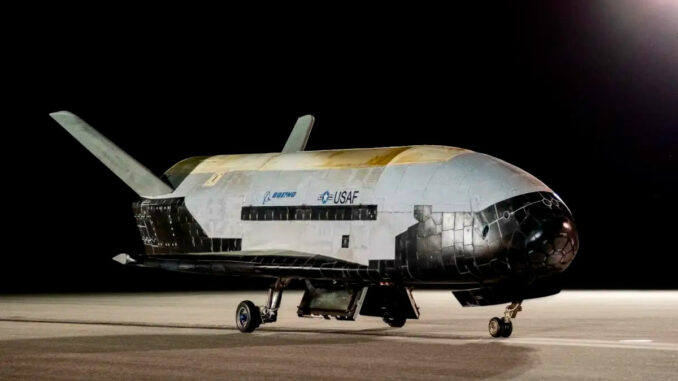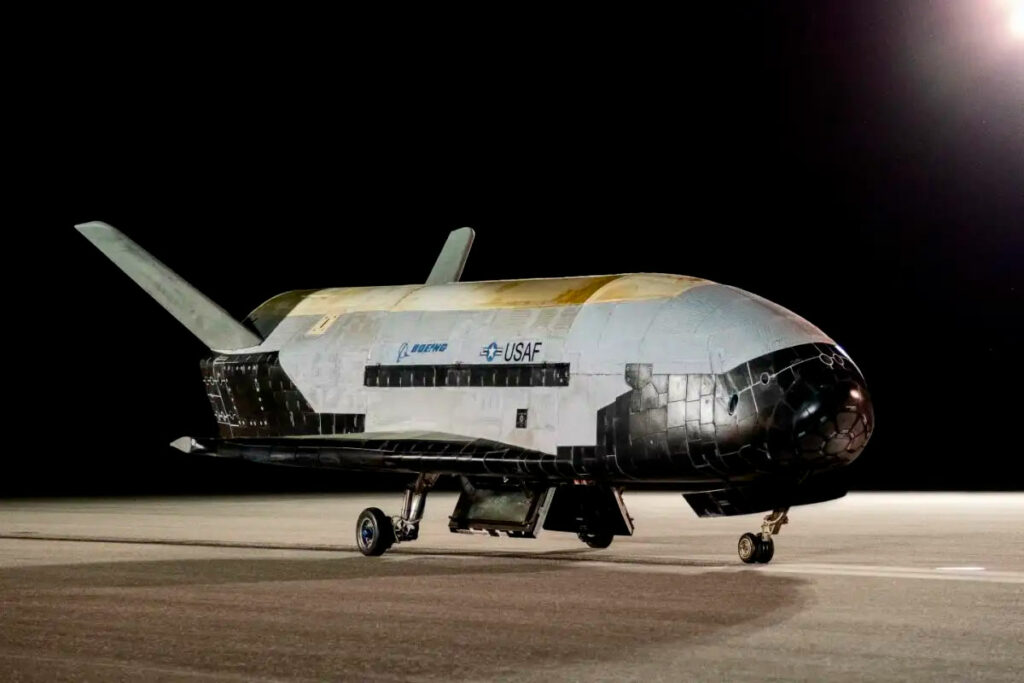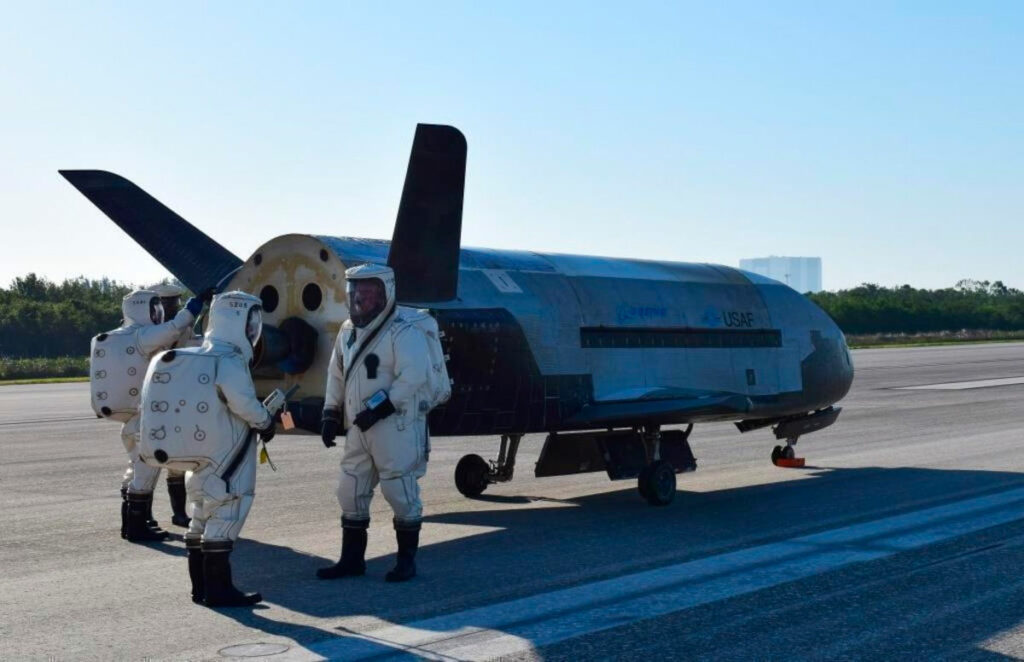
The X-37B, a secretive spaceplane, utilizes aerobraking to modify its orbit, revealing unique capabilities.
The US Space Force’s X-37B spaceplane is performing aerobraking maneuvers, a first for this mini-space shuttle. The objective is to change its orbit while minimizing fuel consumption. This mission, known as OTV-7, began in December 2023. The X-37B was launched by a Falcon Heavy rocket and operates at a higher altitude than previous missions. These maneuvers are part of a quest for innovations to ensure national security.

A First for the X-37B
The X-37B, a small space vehicle, is set to conduct a series of aerobraking maneuvers to change its orbit. This marks the seventh known mission of the X-37B, launched on December 28, 2023, from Kennedy Space Center in Florida aboard a Falcon Heavy rocket from SpaceX.
The US Space Force announced these orbital maneuvers as part of the current mission called Orbital Test Vehicle 7 (OTV-7). These maneuvers involve multiple passes close to the Earth’s atmosphere to utilize atmospheric drag for orbit modification, designed to reduce fuel consumption.
According to statements from the US Space Force, the X-37B is expected to change orbit and safely dispose of its service module components in accordance with recognized standards for space debris mitigation. Aerobraking, while already employed by agencies like NASA to alter the orbits of other spacecraft, is being implemented here in a military and innovative context.
Aerobraking Maneuvers and Their Stakes
Aerobraking maneuvers are a well-known process, but their application by the X-37B could have significant implications. Indeed, these maneuvers allow for orbit modification without requiring large amounts of fuel, which is essential for extending mission duration.
Historically, aerobraking has been applied during NASA missions to the Moon and Mars, demonstrating its effectiveness. The lessons learned from previous X-37B missions, as well as from space exploration missions, have greatly contributed to the planning of these new maneuvers.
The use of aerobraking by the X-37B could also enhance the survivability of military assets in orbit, enabling it to evade potential threats. This ability to maneuver quickly and efficiently in orbit strengthens the strategic position of the United States in the space domain.
Strategic Implications for National Security
The strategic importance of the X-37B cannot be underestimated. The spaceplane not only tests new technologies but also conducts national security missions. The Secretary of the Air Force, Frank Kendall, emphasized that these innovative maneuvers demonstrate the US Space Force’s commitment to achieving significant advancements in its national security missions.
General Chance Saltzman, Chief of Space Operations, described these maneuvers as a crucial milestone in the United States’ ability to operate in the complex domain of space. With increasing threats, including advanced space technologies developed by other nations, the capacity to execute precise maneuvers in orbit becomes essential.
This mission also highlights the US Space Force’s willingness to demonstrate its capacity to innovate in response to an evolving geopolitical environment. Developing orbital warfare capabilities has become a priority, allowing the United States to protect its strategic assets while enhancing its deterrent power.

Training and Technologies
To ensure the success of these missions, the US Space Force is also focusing on training its teams and developing advanced technologies. The integration of electronic warfare systems and surveillance technologies within the framework of this mission could enhance the US Space Force’s ability to respond to threats.
The concept of orbital warfare has been clearly defined by the Space Force, which focuses on preparing and projecting assigned forces to conduct protection and defense operations. This approach includes the use of early warning satellites and counter-space systems to prevent potential attacks.
The importance of securing space operations is also emphasized by the need to preserve the space environment and avoid the creation of debris, as pointed out by the Vice Chief of Space Operations, Michael Guetlein. Implementing policies for responsible behavior in counter-space campaigning is essential to ensure the sustainability of operations in space.
War Wings Daily is an independant magazine.